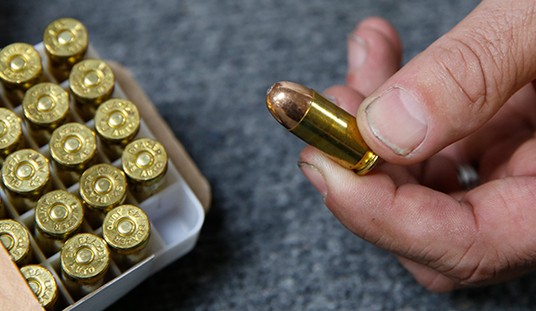The gun debate hinges on two broad camps: Those who value gun rights and those who favor gun control. This is simplistic, of course, with a few people jumping between the two camps depending on the policy suggested, but it does encapsulate the overall debate.
Because those of us who value gun rights refuse to step aside, there hasn’t been enough movement on the issue to gun control fans’ satisfaction.
Now, an op-ed has decided that since politicians can’t just make things happen, maybe we should let medical officials decide.
The past three months have seen mass shootings of schoolchildren in Uvalde, Texas, and July Fourth celebrants in Highland Park, Illinois. Cries for greater gun control to stop such avoidable, premature deaths grow after each event. President Joe Biden recently signed a gun control measure into law, but overall, little substantive change has occurred and is unlikely to occur anytime soon.
Politicians have had their chance. Let someone else take the wheel — namely, the medical community.
…
Given all these conflicts of interest, politicians are the least qualified people to effect change toward reducing gun violence. Anyone who has been an obstructionist by not facilitating research and constructive dialogue is part of the problem.
What is abundantly clear is that gun violence reduction cannot be achieved politically. It must be viewed as a public health and medical issue and resolved by organizations such as the American Public Health Association and the American Medical Association, which represent the interests of physicians who treat the people afflicted by gun violence. Politicians should then be required to enact the resulting recommendations into laws.
If this were just about “public health,” then maybe the author would have something approaching a point. However, when it comes to rights–and gun rights are actual rights–the medical community is a bit lacking.
Let’s not forget that just two years ago, the entire medical community, faced with a real, honest-to-God healthcare crisis, advocated for locking the entire country down. That lockdown appears to have not been worth it, doing little to stop the spread of COVID-19 but doing wonders to break the economy.
What’s more, violent crime surged to levels we hadn’t seen in decades just as lockdown protocols were being relaxed.
So what the author is trying to tell me is that the medical community that may well have managed to wreck the economy and create a massive spike in homicides is the entity we should trust with our gun rights.
Really?
Look, this isn’t to disparage doctors as a whole, nor anyone else in the healthcare field. They do vital work that we simply couldn’t function as a society without.
But that doesn’t mean the “medical community” as a whole should have any say in how or when we get to exercise our civil liberties. Their focus is and has always been on saving lives. There is no balancing between that and our rights in that world because it’s simply not a thing, professionally.
Yes, some doctors do value gun rights, of course. There are a lot of pro-gun docs running around. I’ve been fortunate to speak with many of them through the years, so I have no doubt, and they likely feel the same way about their community.
Further, while doctors do treat the victims of so-called gun violence, they also only see part of the picture. They don’t see the 20-something young woman living alone in the big city who didn’t get raped because her would-be attacker rethought his life choices after staring down the barrel of a Glock 19. They don’t see the mother who was almost carjacked until she pulled out a snub nose revolver that scared the attacker off.
They don’t see those things because there’s no one for them to treat.
Also, they don’t necessarily know anything about the “victims” that get wheeled into the ER. Yeah, he was shot, but why? Do they care right then? No, nor should they. That’s not their job. Their job is to treat that patient and try and save their life.
But they get a very slanted view, and people need to remember that.
The author is a data guy, he says. He should probably stick to that because as a policy wonk, he’s in over his head.








